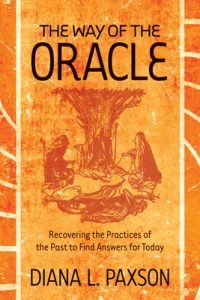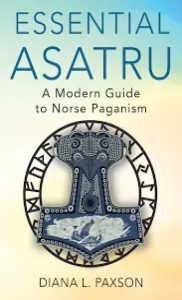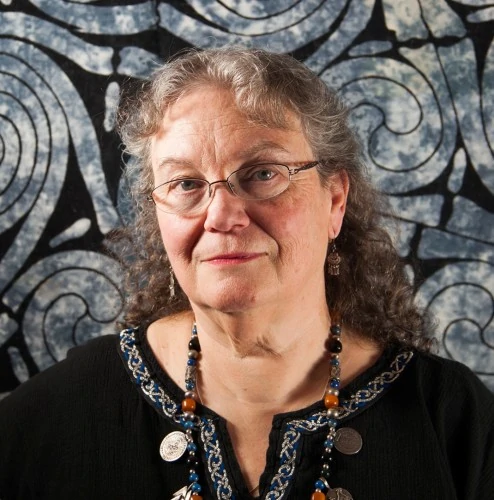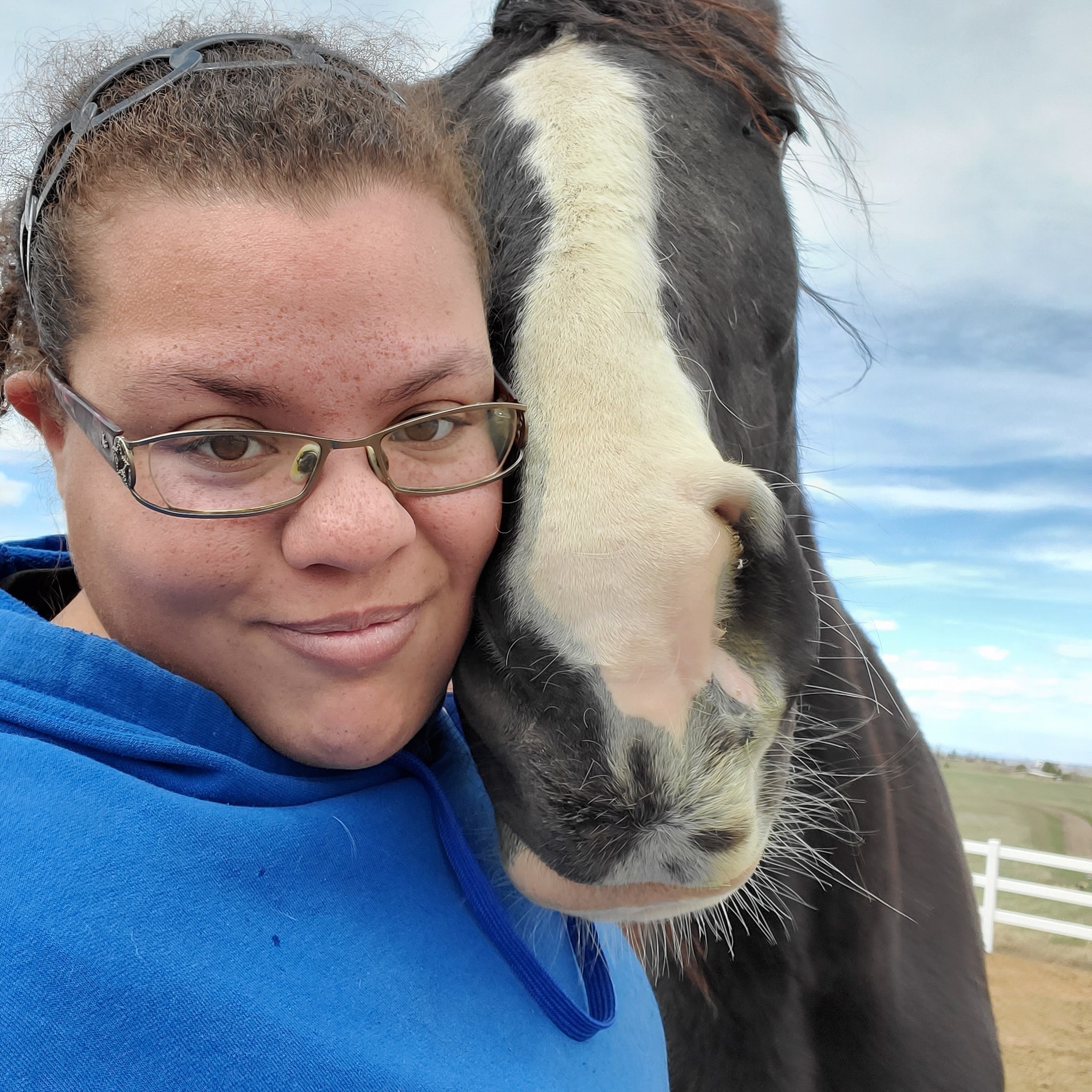A Priestess of Many Hats: Diana L. Paxson
Interviewed by Hunter Liguore
Diana L. Paxson spent most of her life near the Pacific Coast
in California. She is a voracious reader and discovered a love of
anachronism when she saw people working with swords at a science
fiction convention. The Society for Creative Anachronism was born and
Paxson served on the board of directors. Throughout her love of history,
science fiction, and learning she discovered her place in the growing
pagan community. She has a love of runes and her recent writings reflect
on her knowledge of the Asatru community. Though her schedule is
pretty busy, she took time to answer a few questions.
With all the different hats you wear, Ms. Paxson, which one best describes how you see yourself the most, the one you want to be remembered for, and why?
Writing may not be the most important work I am doing now, but it is certainly the work for which I hope to be remembered, since the books are what will remain when I am gone. (Unless I get tagged to serve as a dis, a female guardian spirit, for my community—heathen theology allows for that fate, among others). My spiritual experiences and explorations are reflected in my novels and made explicit in the non-fiction books. By teaching, I learn, and by writing pass the learning on.
Your spiritual life and work life have been traveling along the same path for many years now. I often hear from friends that they struggle with balancing the spiritual path with life in general (work, family, etc.) Do you have any advice for people who are trying to bring their spiritual and work life on the same path? Is it really possible?
I think the answer to that depends on your definition of a spiritual path. There’s often an assumption that being “spiritual” involves doing special things, which therefore must compete with “mundane” things. But another way to look at it is to find the spirituality within the things we do every day. A good example is Japanese Tea Ceremony, which turns the common act of making a cup of tea into a religious experience.
That said, though it may be possible to live daily life in a spiritual way, when you’re busy it’s hard. I have to confess that it certainly gives me problems. It is especially difficult when you have small children. At that point, most women’s spirituality goes into “Mother Goddess” mode until the kids are older. Spiritual exercise, like physical, is something we have to consciously make time for. It helps if you have internalized certain practices for calming down and focusing, which you can then automatically apply at moments of stress.
Another problem is balancing all the demands. Running a coven or kindred requires one to keep track of what’s going on with the group and be available for advice and help. This can compete with the time owed to job and family. When you are a writer, people assume your schedule is flexible and can drop everything to help them during the day. Most writers I know will take advantage of almost any good excuse to put off writing. Getting the words out is hard, and the pay-off in money or appreciation is distant. When someone calls for help, it’s far too easy to put off work to deal with the immediate need.
Your work with Oracular Seidh is groundbreaking in unlocking the mysteries of divination for the average person, and bears witness to the fact that most ancient religions used oracles. In your book, Way of Oracles, you provide the reader with the history of oracles, as well as a guide to learning and practicing divination. Do you think the average person is capable of becoming an oracle, or is it just for the gifted? Do you foresee a time when oracles will dominate culture, perhaps to the point that even the president is consulting the oracle for decisions?
Some people do have a natural talent for oracle work, just as some find it easy to draw or sing, but when we do workshops, we have found that almost anyone with sufficient motivation can get answers if they are given training and support by a trained team. There seems to be a trade-off between support and training. The Druids studied for twenty years, and could spout prophecy spontaneously, without preparation, whereas the pythias in Delphi were said to be untrained village women who were guided by elaborate ritual and a priesthood.
It’s a matter of learning how to shift gears and become open to intuition. Developing this ability can be useful, but I don’t think it’s going to sweep the nation. There are rumors that past presidents (or their wives) have consulted astrologers, but unless someone with the prestige of Delphi reinstitutes the oracle, I don’t think heads of state will admit to seeking their counsel.
What do you think is the most important thing for pagan communities to do in order to have longevity? What is the secret to the success of the groups you’ve founded/supported?
One challenge we face now is that the generation that found paganism in the 70s and 80s is growing older. The knowledge gained by pagan groups that haven’t found a way to integrate younger members may be lost, though emerging pagan libraries are working to preserve our history. The small, intimate groups characteristic of many pagan traditions tend to be age-cohorts as well, sharing the life span of their members.
Pagan festivals continue to attract people of all ages. National organizations, like the Covenant of the Goddess and land-based groups like Circle Sanctuary, are also serving new people. Reconstructionist traditions like heathenry got going a bit later and are attracting a younger membership, but everyone needs to keep in mind the need for outreach and community building.
However I have observed one disturbing trend. The children of the first generation of neo-pagans have now grown up. Although most of them identify as pagan or agnostic pagan-friendly and may maintain family-based practices, very few are active in covens or pagan community activities. Recent statistics indicate a general trend toward agnosticism and secularism among the children of Christians and other established religions. It is a surprise to realize that our pagan children, don’t seem to feel much need for organized religion either.




What is something your readers might find surprising to learn about you?
One reason my household has so many large events is that it forces us to clean house!



